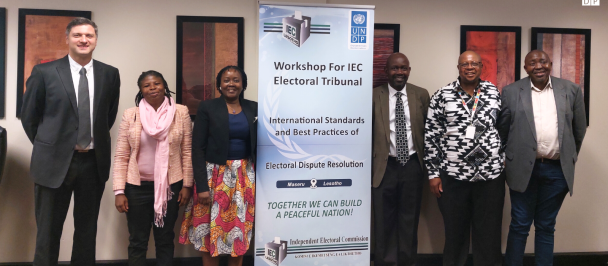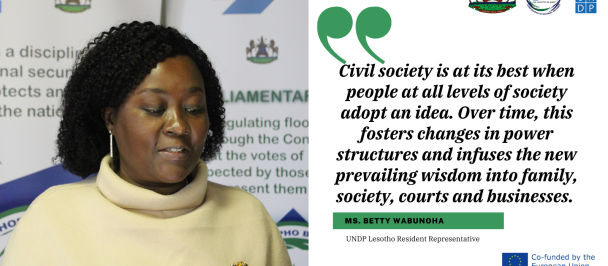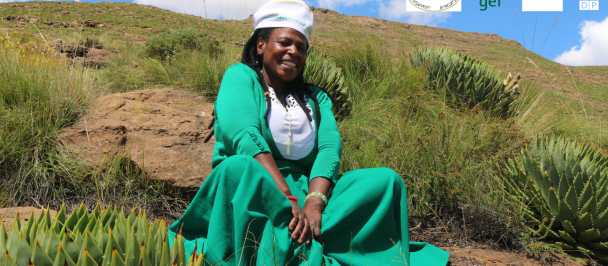UNDP Lesotho Deputy Resident Representative, Ms. Nessie Golakai-Gould
On 28 January 2022, UNDP Lesotho’s Governance and Peacebuilding Unit through its Justice Project team, the Lesotho Judiciary representatives, and Qualysis Consultants convened at Maseru Avani for the Inception Meeting for The Needs Assessment for The Civil Case Management System and Strategic Plan Development for the Judiciary. The meeting served as a platform for a presentation by Qualysis in which they interpreted their understanding of the terms of reference, defined the gaps which prevail within the current system and how they plan on developing a comprehensive case management system which would improve the processes of the courts such as case filing, the fair and efficient resolution of cases, as well as public access for all Basotho. Thus, restoring public trust.
As one of the foundations of democracy in Lesotho, the justice sector’s quest for support from UNDP and the European Union as partners in the case management system implementation has highlighted a broader need to develop efficient systems and processes so that many social problems such as high rates of gender-based violence, abuse and homicide can be mitigated effectively. In this case, a gendered-lense within the case management system will improve access to justice with a specific focus on women in this country where one in three girls and women experienced abuse by an intimate partner in 20191. In order to achieve an efficient case management system there are aspects which were highlighted as important by the Planning Team.These include: a core Strategic Planning Team from the judiciary; highlighting areas where the current manual system has shortfalls, to avoid replicating those errors into the automated system; designing a system that is interoperable with other information management systems which are already in place within the Justice Sector; and adding a cybersecurity programme. In addition, strategic planning methodologies which cater to the COVID19 and post-COVID19 environment will be used. These entail a best deal analysis which looks at the political, economic, social, technological, environmental and legal context of Lesotho.
In sum, this Needs Assessment meeting reminds us that institutional reforms should not be performed in silos, but rather collaboratively, to achieve sustainable and effective development for Basotho. The recognition that the old modes of delivering services are obsolete, and a reformation is urgently needed, begets accountability, social cohesion and stability. Undeniably, this is the ultimate recipe for sustainable and inclusive development through effective public institutions, a core principle of UNDP.
Support For Implementation of the Justice Sector Reforms Project
The Justice Sector Reforms Project contributes to Outcome 1 of the UNDP Lesotho Country Programme Document focused on strengthened rule of law, improved access to fair, timely and equitable justice services. More specifically, the project supports the speedy disposal of high-quality prosecution services by the Department of Public Prosecution, and to ensure the efficient adjudication of criminal cases by experienced and impartial judges. The project is funded by the European Union

 Locations
Locations


